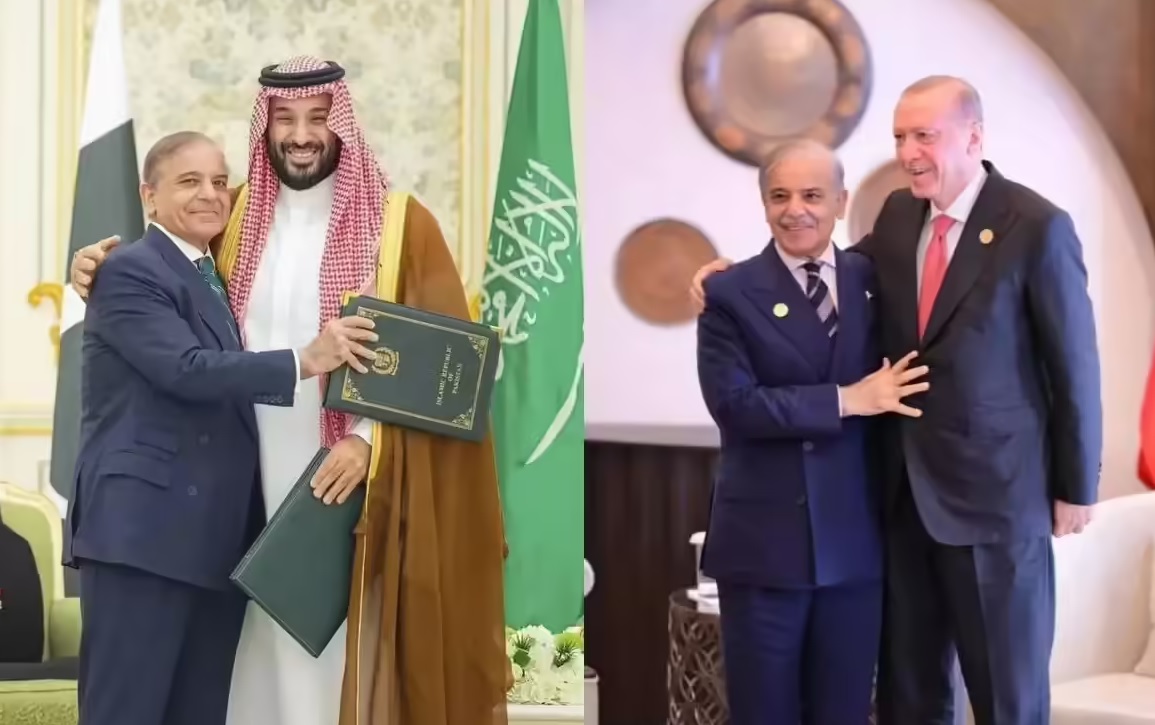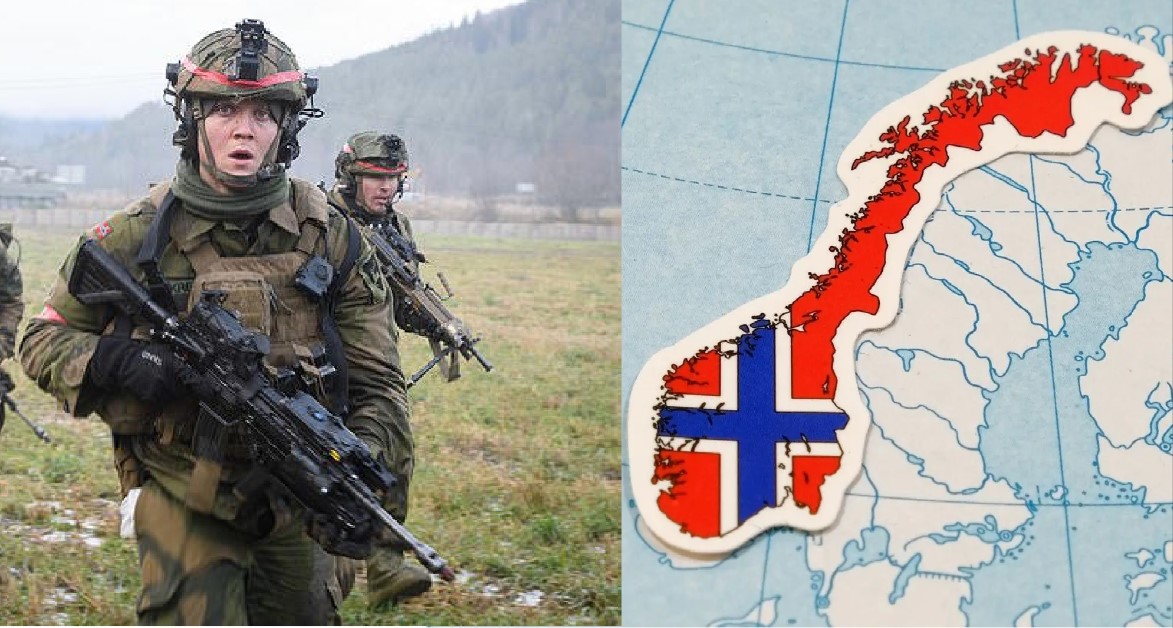Turkish C-130 Military Cargo Plane Crashes With 20 Soldiers Near Georgia-Azerbaijan Border After Departing Baku Parade

In a tragic aviation disaster, a Turkish Air Force C-130 military transport aircraft has crashed near the Georgia-Azerbaijan border, killing several personnel on board. The aircraft was returning to Turkey after participating in Azerbaijan’s November 8 Victory Day military parade, which marked five years since the end of the 2020 Nagorno-Karabakh war.
The Turkish Ministry of National Defense confirmed that the US-made Lockheed C-130 Hercules went down shortly after takeoff from an airbase in Azerbaijan, where Turkish troops and air force units had been attending the commemorative event in Baku. The plane reportedly carried around 20 Soldiers, including flight crew and military personnel.
Disappearance From Radar and Crash Site Details
According to Georgia’s Civil Aviation Authority, the aircraft disappeared from radar without issuing a distress signal while flying over eastern Georgia near the town of Sighnaghi, roughly 5 kilometers (3 miles) from the Azerbaijani border.
Shortly afterward, local residents reported seeing a “bright flash” followed by smoke rising from a hilly region near the crash site. Emergency services, Georgian interior ministry units, and Turkish rescue teams quickly converged on the area, where they found wreckage scattered over a wide radius.
Television footage broadcast by TV Imedi and Reuters showed mangled debris, twisted metal fragments, and what appeared to be the aircraft’s door lying on open ground. The scene suggested a high-impact crash, likely caused by a sudden loss of altitude rather than an attempted emergency landing.
Reactions from Turkey and Azerbaijan
Turkish President Recep Tayyip Erdoğan expressed deep sorrow over the loss of Turkish servicemen, referring to them as “our martyrs.” He extended condolences to the victims’ families and vowed that the cause of the crash would be fully investigated.
“Our nation grieves today for the heroes we have lost in service. May Allah have mercy on our martyrs, and may their families find strength in this difficult time,” Erdoğan said in a statement from Ankara.
In a message to his Turkish counterpart, Azerbaijani President Ilham Aliyev expressed his condolences, saying he was “deeply saddened by the tragic loss of Turkish servicemen.” Aliyev emphasized that Turkey and Azerbaijan “stand together in grief, just as we stand together in brotherhood.”
The U.S. Ambassador to Turkey, Jeffry Flake, also issued a statement on social media:
“We are deeply saddened by the loss of life in the crash of a Turkish Armed Forces C-130. Our thoughts are with the families of the fallen and with the people of Türkiye.”
Part of a Military Delegation in Baku
Sources within the Turkish Armed Forces (TSK) confirmed that the C-130 had been part of a logistical support contingent deployed to Azerbaijan for the Victory Parade. The event commemorated the Azerbaijani victory in the 2020 Nagorno-Karabakh conflict, where Turkey played a significant role by providing Bayraktar TB2 drones, advisors, and training support.
Turkish Air Force personnel participated in a fly-past alongside Azerbaijani aircraft during the parade, while Turkish officers attended as part of the official delegation. The crashed C-130 was reportedly carrying equipment and personnel back to Turkish bases when it met with disaster shortly after crossing into Georgian airspace.
Possible Causes Under Investigation
Preliminary assessments indicate that the plane lost contact with air traffic control shortly after takeoff, without sending a distress signal — a possible sign of sudden mechanical failure or power loss.
A joint Turkish-Georgian investigation team has been established to examine the wreckage and flight data recorders. Local authorities said weather conditions were clear at the time of the crash, reducing the likelihood of environmental factors.
Aviation experts have noted that the C-130 Hercules, though highly reliable, is an aging aircraft platform in several global fleets, including Turkey’s. Introduced in the 1950s, the model has undergone multiple upgrades but remains susceptible to wear-and-tear issues, particularly during high-frequency military operations.
The Turkish Air Force operates a fleet of over a dozen C-130B and C-130E variants, many of which have logged several decades of service. In recent years, modernization programs have aimed to improve avionics and structural integrity, but some older airframes remain in use for heavy transport missions.
Rescue and Recovery Efforts
By evening, rescue teams from both Georgia and Turkey had secured the area. Black boxes and other flight recorders are expected to be recovered and sent to Ankara for analysis.
The Georgian Interior Ministry confirmed that multiple bodies had been recovered but did not specify a final casualty figure. Turkish military transport planes were dispatched from Ankara to aid in the recovery operation and repatriate the remains of the servicemen.
Emergency responders described the crash zone as difficult to access, with debris spread across uneven terrain. Local firefighters worked alongside Georgian border police and Turkish military attachés stationed in Tbilisi to coordinate the scene.
A Symbolic Loss Amid Brotherhood
The timing of the crash adds a layer of poignancy to the tragedy. The November 8 Victory Parade in Baku was a powerful symbol of the enduring alliance between Turkey and Azerbaijan — an event celebrating shared military success and cooperation.
For Ankara, the loss of its servicemen while returning from such an event represents not only a technical tragedy but also an emotional blow to a moment of unity and pride.
Defense analysts note that the incident may lead to renewed scrutiny of Turkey’s aging transport aircraft fleet and accelerate efforts to induct newer models such as the Airbus A400M Atlas, which Turkey already operates alongside the older C-130s.
The crash of the Turkish Air Force C-130 Hercules near the Georgia-Azerbaijan border stands as a sobering reminder of the risks inherent in military aviation. As search and recovery teams work to determine the cause, both Turkey and Azerbaijan have entered a period of mourning for those who perished in service.
The C-130, a symbol of reliability for decades, has once again shown that even the most trusted military workhorses are not immune to tragedy. For now, the focus remains on recovering the fallen and uncovering the reasons behind this devastating loss — one that has cast a shadow over two nations bound by history, brotherhood, and shared sacrifice.
About the Author
Aditya Kumar:
Defense & Geopolitics Analyst
Aditya Kumar tracks military developments in South Asia, specializing in Indian missile technology and naval strategy.






